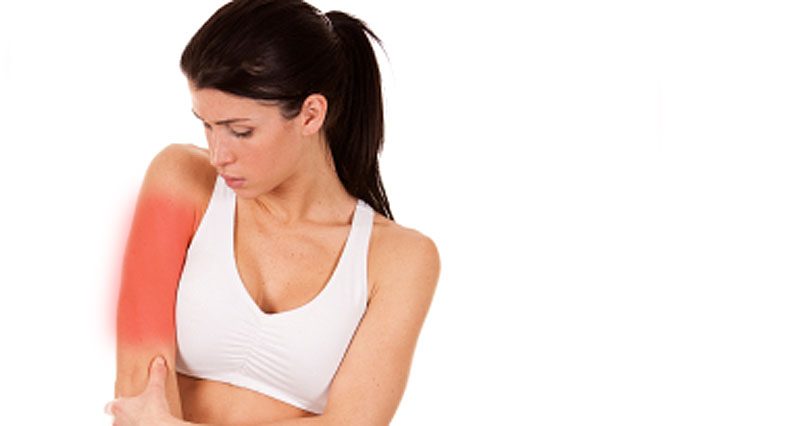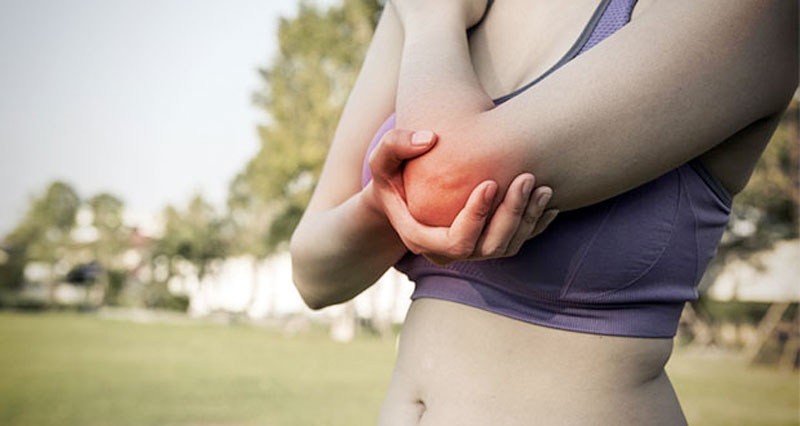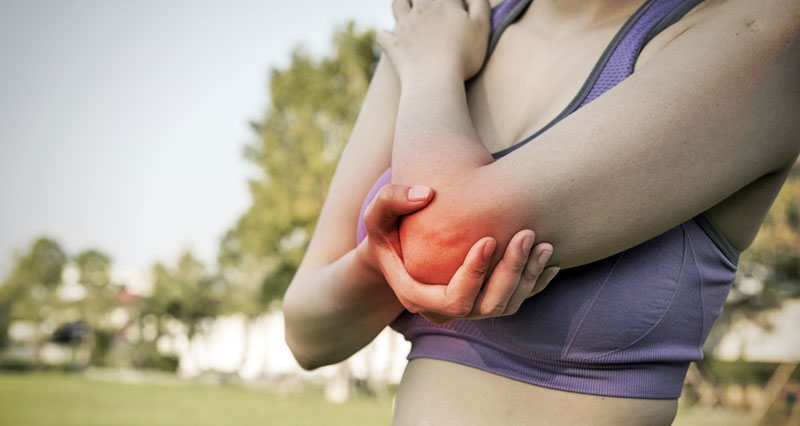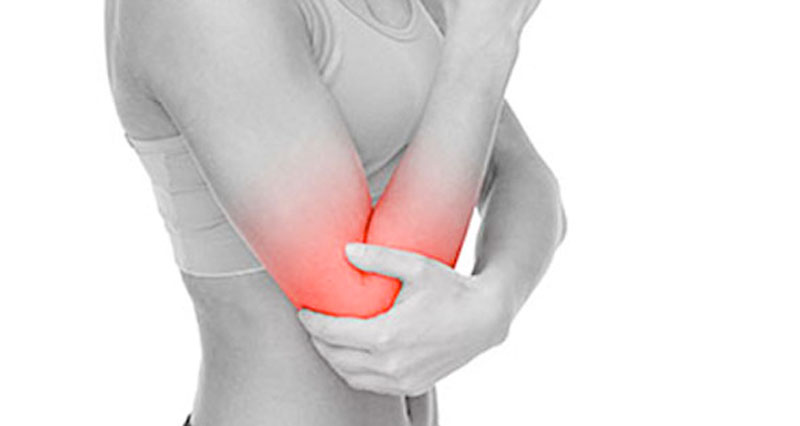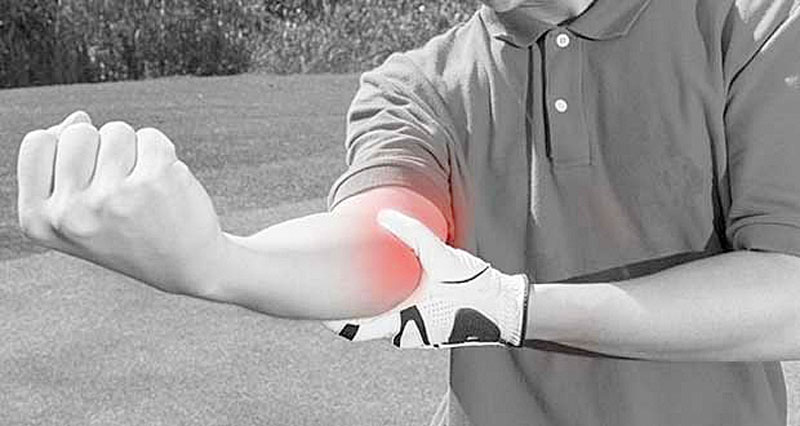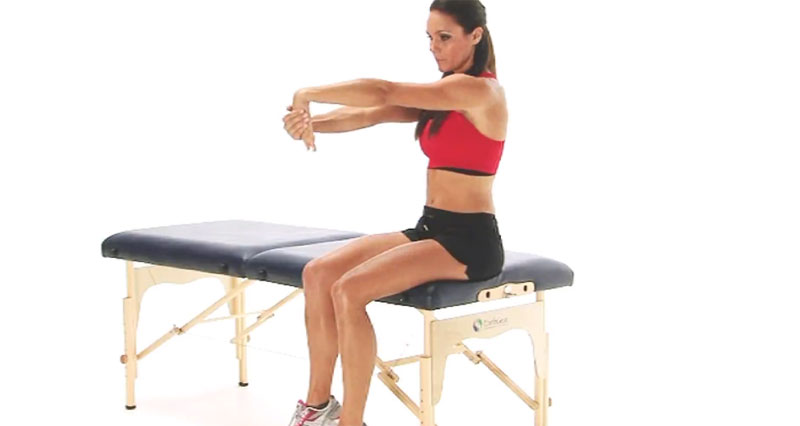Upper arm pain causes include fractures to the humerus bone, nerve injuries, contusions, and muscle strains. Here we explain the symptoms and causes of sports injuries of the upper arm.
Acute upper arm injuries
Acute injuries are sudden onset injuries and include fractures and muscle strains. If you suspect a humerus fracture then seek medical attention immediately.
Triceps Strain
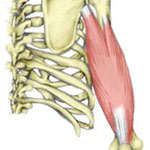
A tricep strain is a tear to the triceps brachii muscle at the back of the upper arm. The triceps muscles is the main muscle which contracts to straighten the elbow. Sudden, excessive force causes the muscle to tear. However, overuse also causes this relatively small muscle to overload and strain. Specifically, symptoms include:
- Pain in the muscle at the back of the upper arm, or the attachment points at the elbow or shoulder.
- Mild swelling or bruising.
- You may feel a small popping or ripping sensation.
Read more on Triceps strain.
Humerus Fracture
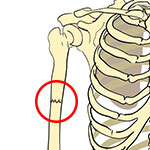
A humerus fracture is a break of the bone resulting in severe upper arm pain. Fractures may occur anywhere in the bone, from the neck of the humerus near the shoulder to the distal end at the elbow. A form of fracture close to the elbow is known as a supracondylar fracture.
- Symptoms include instant pain in the arm at the time of injury.
- The patient will have difficulty moving their arm either bending the elbow or raising the arm upwards.
- Their arm may appear deformity if the bone is displaced.
- Read more on Humerus fracture.
Axillary Nerve Injury
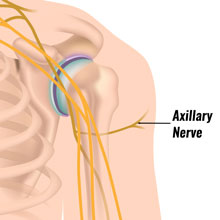
Injury to the Axillary nerve usually occurs as a result of a direct impact to the outside of the arm. However, it can also be injured following a shoulder dislocation or compression of the nerve. Symptoms include:
- Numbness over the deltoid muscle on the outer upper arm.
- Difficulty raising the arm out to the side.
- Wasting the deltoid muscle in prolonged injuries.
- Read more on Axillary nerve injury.
Upper arm contusions
Contusions are also a common cause of upper arm pain. A direct blow to the front, back, or side of the arm crushes muscle against bone and injures it. The biceps muscle at the front or the triceps at the back of the upper arm could be affected. It may also occur in conjunction with an Axillary nerve injury.
Symptoms:
- Pain on and after an impact.
- Loss of full elbow extension (straightening)
- Pain on trying to bend the elbow, especially against resistance).
- Tenderness on touch.
- Bruising.
- Swelling.
Treatment:
- Apply ice to reduce bleeding and swelling.
- Elevate the arm and use a compression bandage.
- Rest from any activities which cause pain.
- Try to keep the elbow moving gently.
- Once pain-free, gently stretch the biceps muscle to regain full extension.
- A sports massage therapist may be able to help loosen the muscle. Please note, massage should not be applied within 72 hours of injury.
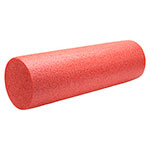
Foam Rollers
Gradual onset upper arm pain
Delayed onset muscle soreness
Delayed onset muscle soreness or ‘DOMS’ occurs when you have exercised beyond that which your body is comfortable with. It often occurs in the upper arm following a bout of weight training.
- For example, overtraining on the Bench press, or Press-ups will create soreness in the triceps at the back of the upper arm.
- Too many biceps curls will cause DOMS in the biceps muscle. Symptoms develop gradually, 24 to 48 hours after training.
- Pain usually eases in a few days as long as you rest.
- Read more on Delayed onset muscle soreness.
